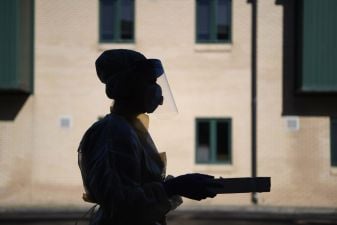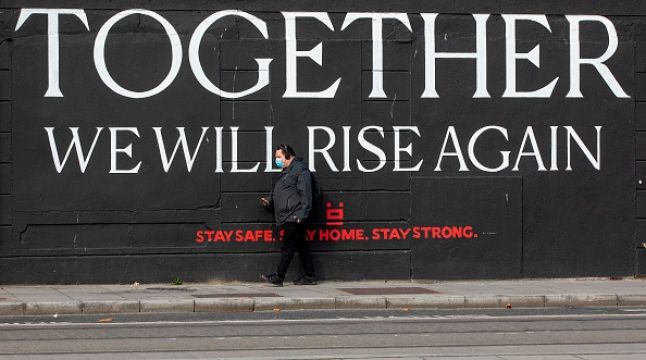Fear and anxiety about the spread of Covid-19 is the “overwhelming predominant” feature among the public, an Oireachtas committee has been told.
Health experts have warned that the Covid-19 crisis has had profound economic, social and educational impacts.
Restrictions to curb the spread of coronavirus have driven levels of loneliness much higher than before the pandemic, GPs also said.
The fear of Covid and the absence of social contact has had significant psychological affects all over the population and of all ages
Dr Denis McCauley, chairman of the Irish Medical Organisation’s (IMO) GP Committee, said there has been heightened anxiety among patients over the fear of the infection.
He told the Oireachtas sub-committee on mental health it has “exasperated” existing conditions.
“The fear of Covid and the absence of social contact has had significant psychological affects all over the population and of all ages,” he said.
“It then manifests in people doing inappropriate things, perhaps going out because they get so tired of it.
“There is that background fear all of the time. It can exasperate conditions that are already there.”
PRESS STATEMENT Irish College of General Practitioners notes that pandemic has created huge challenges in supporting vulnerable patients with mental health conditions.
Read here: https://t.co/U6ZYb9dgry— Irish College of GPs (@ICGPnews) December 3, 2020
Dr Diarmuid Quinlan, medical director of the Irish College of General Practitioners (ICGP), said: “Loneliness was a real challenge before the pandemic and the pandemic has made it much worse.
“The availability of counselling in primary care close to patients would make a huge difference.
“I encourage a lot of my patients, if they can afford it, to see a psychologist privately.”
Dr Sumi Dunne, a member of the IMO GP Committee, warned that anxiety is the “overwhelming predominant aspect” among different groups of people.
The GP in Portarlington, Co Laois, added: “We now have a very expensive period coming up where people feel they have to provide the best Christmas they can – this is all going to feed in and leave a legacy that is going to last longer than we anticipate.”
Solidarity-People Before Profit TD Gino Kenny said the social unity among the public has helped bring them through the “grimness” of Covid-19.
“Whether you are young or old or whatever social class you are from, Covid has left its mark and will continue to leave its mark,” he said.
Dr McCauley said GPs look after some 90 per cent of psychological illness while the other 10 per cent of cases go to the hospital.
He said that GPs don’t have access to talking therapies and medical therapies.
Dr McCauley said: “While we should have three treatment strategies, unfortunately we only have one.
“We have no access to cognitive behavioural therapy, no access to dialectical or group therapy.
“When it comes to the 90% that we are supposed to look after, we have no counselling services at all.
“We have to prescribe for nearly the majority of them and have to give them supportive psychotherapy within our own time in general practice and it’s not something we are resourced to do. But we have to do it.”
You can't tell someone who is in acute distress you have to wait 18 months - that's not realistic
The GPs all called for well-resourced counselling services that are community-based.
Dr Brian Osborne, assistant medical director of the ICGP, said the ability to refer patients to talk therapy is “crucial.”
Dr Osborne said there is an 18-month waiting list for primary care psychology.
“That’s not a service,” he added.
“You can’t tell someone who is in acute distress you have to wait 18 months – that’s not realistic.”
Dr Dunne also warned of the barriers in accessing mental health services.
“If we opt someone into counselling at primary care you have to write a letter. You then have to give the patient a number to ring, the patient has to ring to say they are accepting the service,” she said.

“There is then a wait before they get an appointment and then they have to travel a number of times in order to access the service and the service is capped after ten visits.
“It is not acceptable that we have to repeatedly send our patients away after a short consultation.
“These are the palpable issues that we are facing on a daily basis.”







